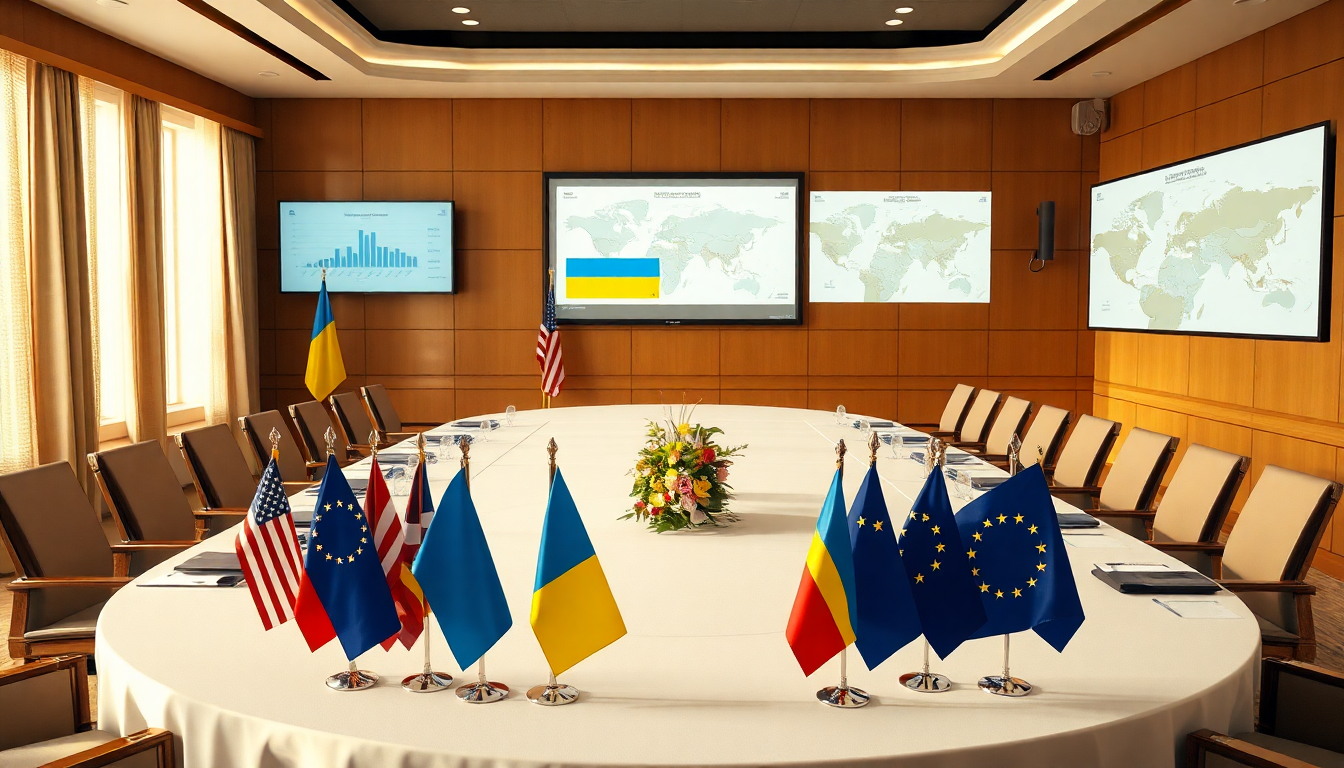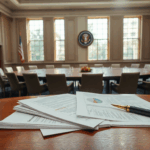Table of Contents
The ongoing conflict in Ukraine continues to grab headlines and shape international diplomacy. With key leaders gearing up for critical discussions, the upcoming meeting between President Donald Trump and Ukrainian President Volodymyr Zelenskyy, flanked by several European leaders, is set to tackle the urgent issues surrounding the war with Russia.
Trump’s claim that Zelenskyy could resolve the conflict “almost immediately” if he wanted to sheds light on the complexities at play. This article takes you through the dynamics of this high-stakes meeting and what it means for Ukraine and its allies.
The geopolitical context of the Ukraine conflict
Since the conflict with Russia began, Ukraine has faced immense challenges in its fight to protect its sovereignty and territorial integrity. This struggle is set against a backdrop of intricate international relations, where alliances truly matter.
Trump’s comments reflect a belief that if Ukraine takes decisive action, a quick resolution could follow. But let’s be honest—the realities on the ground are far more complicated.
European leaders, including NATO Secretary General Mark Rutte and European Commission President Ursula von der Leyen, will also join the talks in Washington D.C.
Their attendance showcases a united European front in support of Ukraine. This isn’t just a bilateral issue; it’s a concern that affects the entire region. The collective stance against Russian aggression is a powerful message that resonates across the continent.
Moreover, the discussions are expected to focus on long-term military aid and Ukraine’s aspirations for EU integration. This adds another layer to the conversation, emphasizing that the war’s implications extend beyond Ukraine, threatening the stability of Europe as a whole.
The commitment of European nations to back Ukraine during this tumultuous time highlights just how high the stakes are when it comes to maintaining peace and security in the region.
Strategic priorities and negotiations
As the meeting approaches, Zelenskyy has laid out his key priorities, stressing the urgent need for ongoing military support and strategic partnerships. His proactive engagement with European leaders shows a clear understanding of the necessity to solidify alliances in the face of persistent Russian threats. This dialogue aims to ensure that Ukraine remains front and center on the international agenda, especially with the discussions with Trump looming.
As Trump gears up to meet with both Zelenskyy and Putin, the dynamics of these negotiations will be crucial. Remember Trump’s previous summit with Putin? It raised eyebrows due to his suggestion that Ukraine might have to think about territorial concessions. This idea hasn’t gone down well with Zelenskyy and European leaders, who are steadfast in their support for Ukraine’s territorial integrity.
The complexity of these negotiations reveals the delicate balance required in diplomacy. The stakes are high, and the outcome of these talks could significantly shape the future of the conflict. Will the calls for a peace deal manage to reconcile the differing positions of those involved? Only time will tell.
Looking ahead: Implications for Ukraine and the international community
The upcoming meeting between Trump and Zelenskyy, alongside European leaders, presents a prime opportunity to reassess how the international community approaches the Ukraine conflict. A unified stance against Russian aggression could provide Ukraine with the crucial support it needs to navigate this challenging period.
However, the road to resolution is paved with obstacles. Zelenskyy’s strong rejection of any territorial concessions reflects a broader sentiment throughout Ukraine, highlighting the value placed on sovereignty. As discussions progress, the international community must weigh the implications of any agreements and their potential impact on regional stability.
In conclusion, the meeting between Trump and Zelenskyy marks a pivotal moment in the ongoing conflict. With European leaders in attendance, these discussions could set the stage for a renewed focus on peace and stability in Ukraine. The days ahead will be critical in determining the future trajectory of this conflict and the role of international diplomacy in addressing its many complexities.





